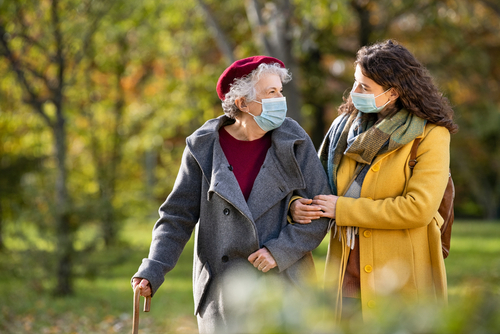
Flu vaccination often becomes a hot topic as we farewell summer and make our way towards the colder part of the year.
There is no hard and fast rule about getting the flu jab, but it helps to know what’s available and why it might be an option worth considering.
Causes in ‘Flu Season’
While there’s not really a strict ‘flu season’, Australia typically sees an increasing number of people struck down by the flu occur between May and October. It is often said to peak in August and cases of the flu decrease from then through to October.
The flu can come on very suddenly and is commonly spread via the air through coughing, sneezing and close contact. Direct contact with the virus on people’s hands or on surfaces can spread the flu too.
The Flu VS A Cold
We tend to throw the term ‘flu’ around a little too freely when a runny nose arrives. The truth is, the flu is noticeably different to a common cold.
While both are unpleasant, the flu – short for influenza – is a far more debilitating viral infection that can be dangerous, particularly to children and older Australians.
| Cold | Flu | |
| Fever | Rare | High fever lasting 3-4 days |
| Headache | Rare | Common, prominent |
| Aches and pains | Slight | Common, can be severe |
| Fatigue and/or weakness | Mild | Prominent, can last 2-3 weeks |
| Stuffy nose | Common | Sometimes |
| Sneezing | Common | Sometimes |
| Cough | Usually mild, sometimes moderate | Common, can be severe |
| Sore throat | Common | Sometimes |
Flu Vax or Not
The choice of whether to be immunised against the flu is yours to make.
The flu vaccination is very affordable so cost doesn’t need to influence your decision.
It is worth knowing that unlike some other vaccines, there is no live virus in the flu shot and you cannot get the flu from the vaccine.
The Australian Government’s immunisation program recommends flu vaccinations for the following groups of people and offers it to them free of charge:
- all people aged 65 years and over
- all Aboriginal and Torres Strait Islander children aged 6 months to 5 years
- all Aboriginal and Torres Strait Islander people aged 15 years and over
- pregnant women
- people aged 6 months and over with medical conditions predisposing to severe influenza
Prevention of the flu
The best thing to do is avoid getting and/or spreading the flu!
Simple things like covering your mouth when you cough or sneeze and washing hands thoroughly. In our technology-saturated lives, it’s even beneficial to make sure you clean your phone, computer’s keyboard and other devices you touch on a daily basis.
When it comes to the elderly, pregnant women, babies and other people at higher risk, be extra careful to avoid sharing any flu germs with them. This is particularly important if you’re working or undertaking placement in aged care or early childhood.
The flu vaccination is recommended as the best way to avoid the flu, and it is required yearly to be effective as the vaccine is changes to better protect against the strains that are expected for each year.
This is a general guide to the flu – if you have questions or concerns about your health or whether the flu shot is right for your personal circumstances, get in touch with a healthcare professional.
